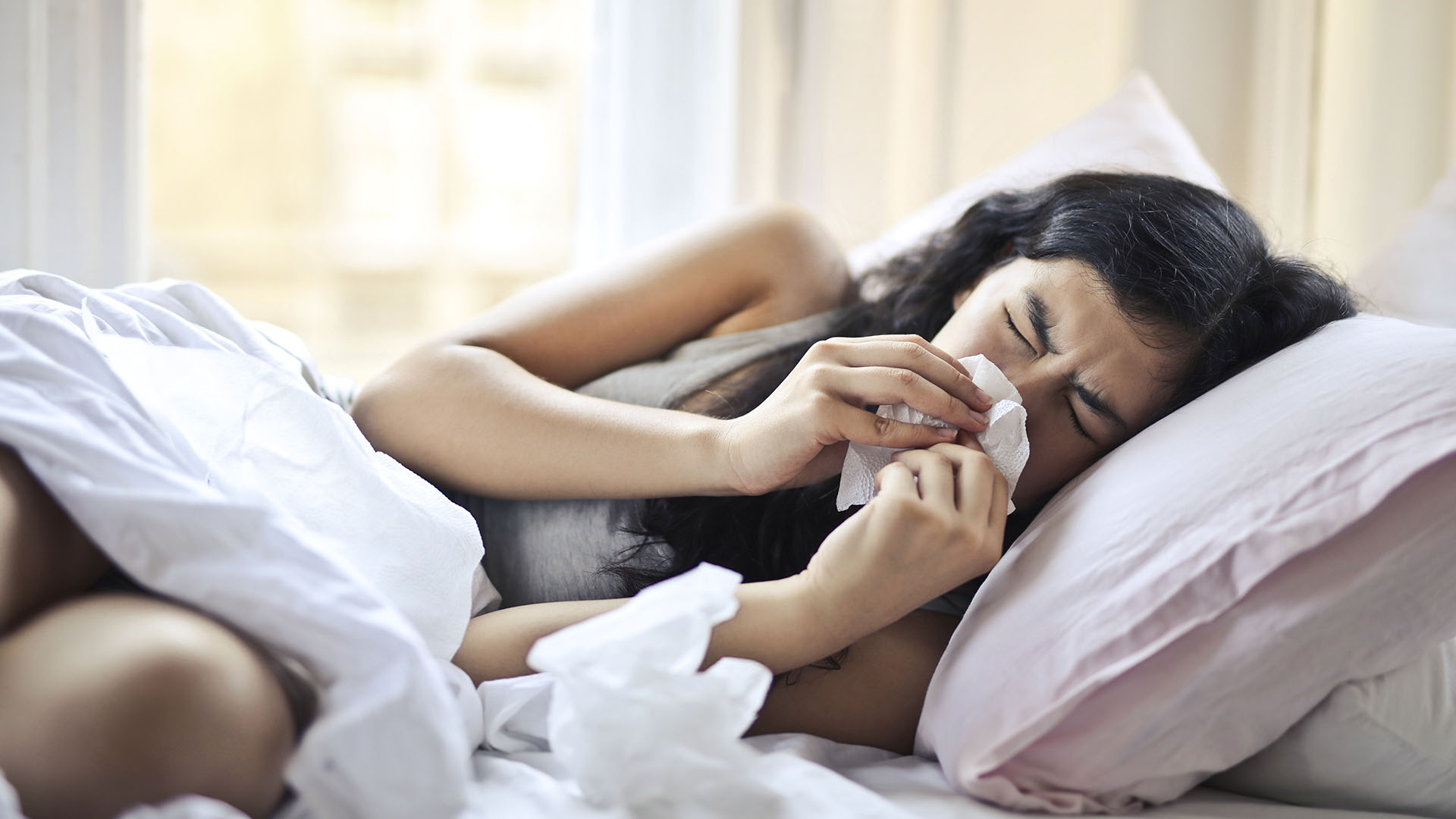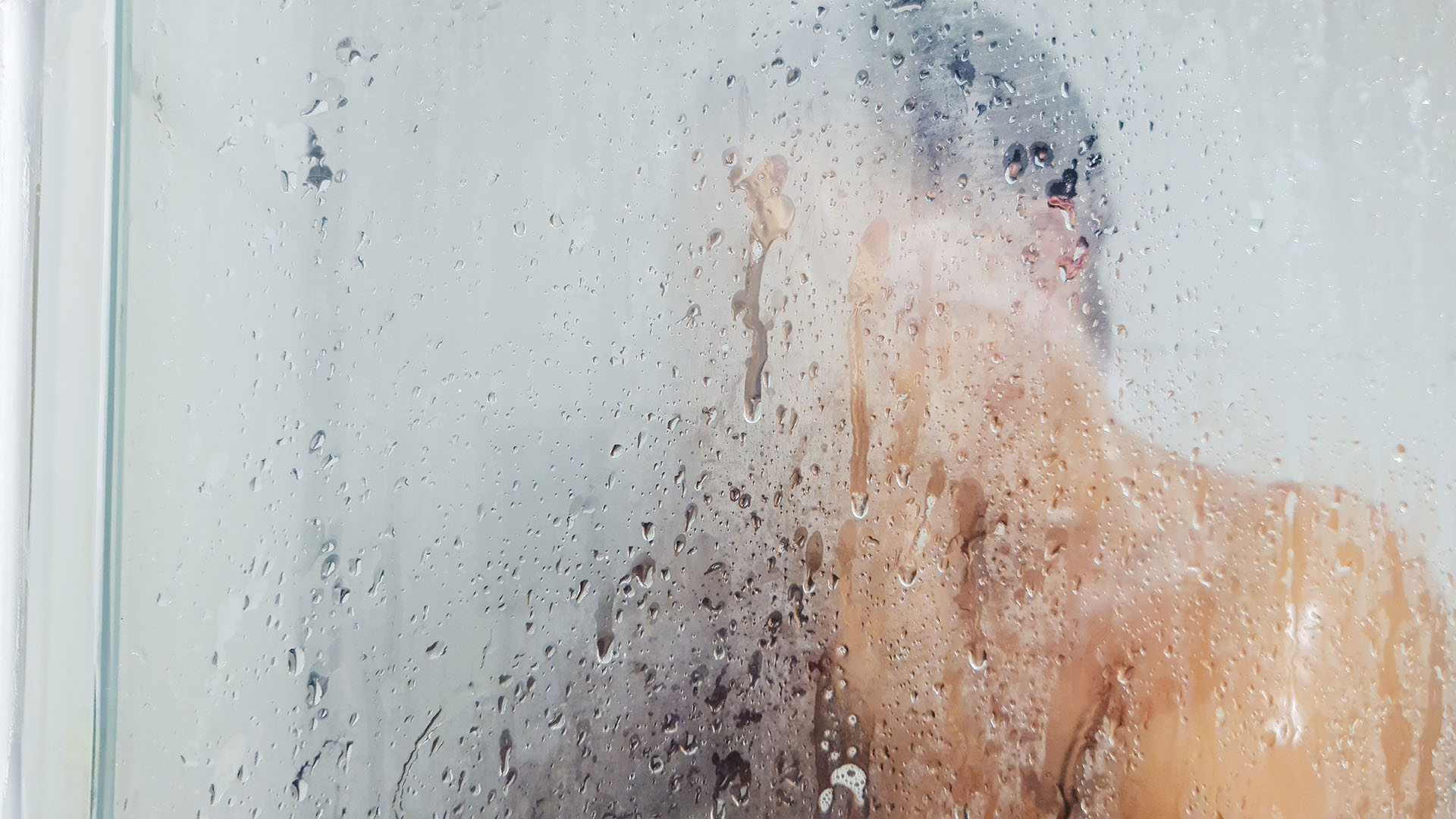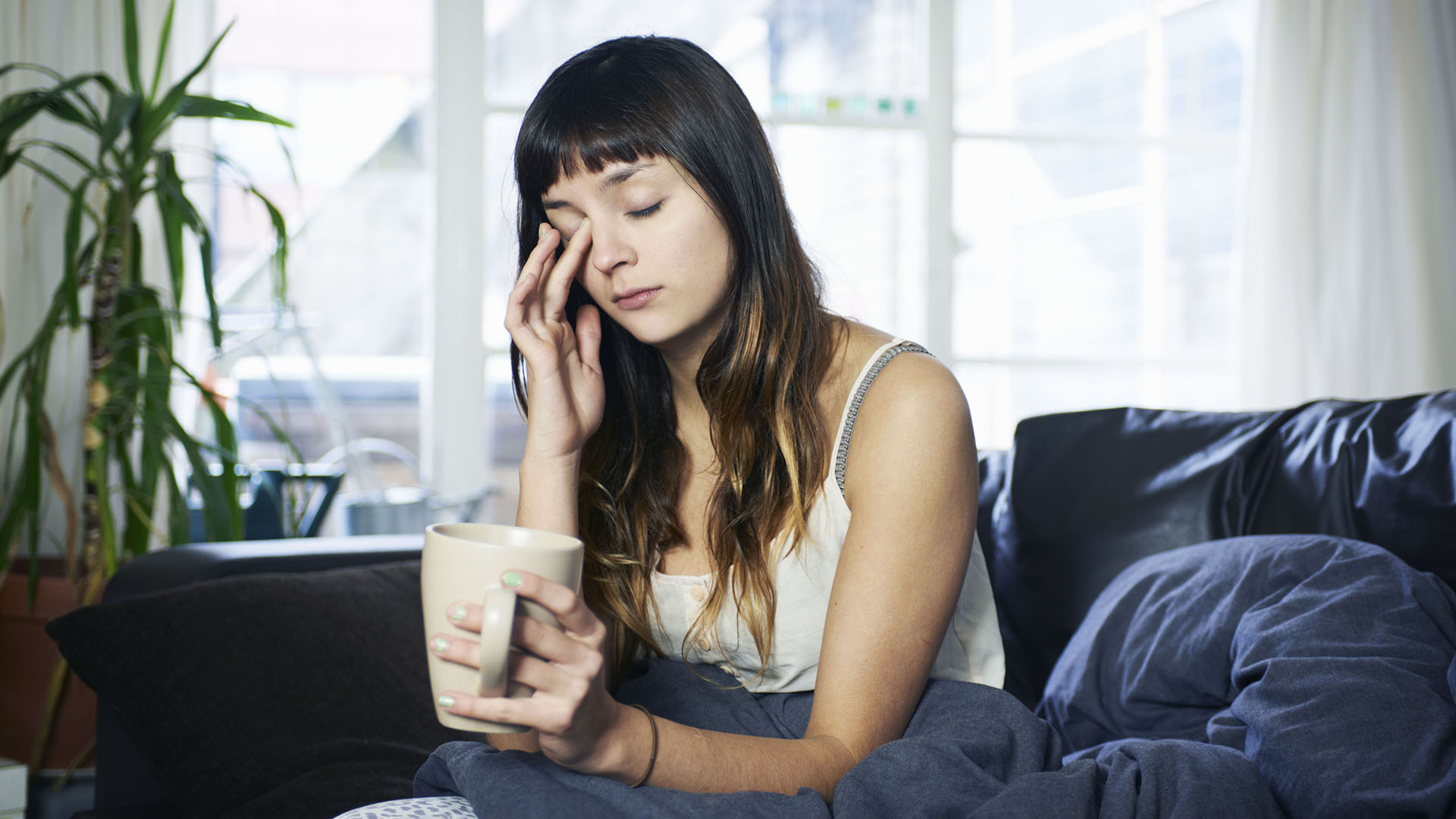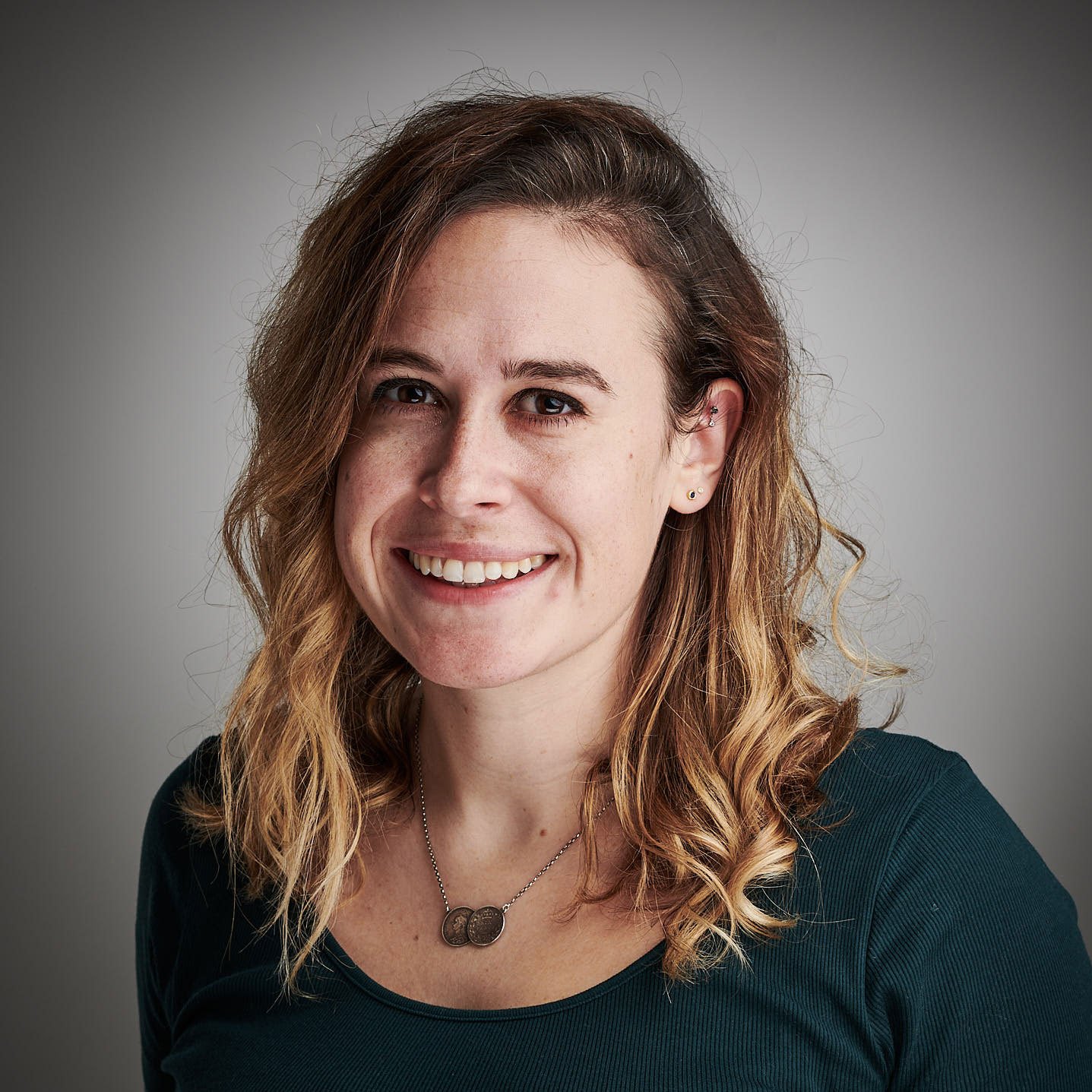6 tips to help you sleep better when you've got a cold
Warning: contains multiple instances of the word 'mucus'

Sign up for breaking news, reviews, opinion, top tech deals, and more.
You are now subscribed
Your newsletter sign-up was successful
Dealing with a cold is rubbish, and being unable to sleep because every time you lie down you start drowning in your own snot is even worse. It's especially frustrating because your body needs good quality rest to recover from the cold, and chances are you're feeling more tired than usual anyway. We asked a sleep expert for their advice on how to sleep better when you're bunged up – read on for their top tips.
For more advice, check out our guide on how to use the Military Sleep Method to drop off quicker, and if you decide it's time to upgrade your sleep setup, our best mattress guide should be your first port of call.
1. Get steamy
"Steam can help loosen the mucus in your nasal passages, improving congestion," explains neuroscientist and sleep expert Dr Lindsay Browning. She suggests filling your sink with warm water, and then leaning over the sink and draping a towel over your head to trap the vapor in. "As the steam builds, inhale deeply. Take care not to scald your face on the water or steam."
2. Hit the showers
"A hot shower may also provide some temporary relief from congestion by thinning out mucus. You want your shower hot but still comfortable," advises Dr Lindsay. If you close the door to trap in the steam, you can create the same effect as the facial steaming technique above – take a few deep breaths to help clear your sinuses.
"A warm bath or shower before bed can also help promote sleep because as you get out of the warm water and start to cool down, this drop in temperature helps you to feel sleepy," she adds.

3. Grab an extra pillow
"Sleeping with your head elevated can help drain mucus and relieve sinus pressure," explains Dr Lindsay. Sleeping on your back, add an extra pillow to raise your head a little higher than usual (or pick a higher-loft option from our best pillow guide). If you've got an adjustable bed, raise the head end.
4. Create the optimal sleep environment
"When you’re sick, you’ll want to make sure your bedroom environment is the best it can be for sleep," says Dr Lindsay. "For example, you might feel more sensitive to fluctuations in light or temperature. Keep the temperature in your bedroom cool. Use blackout curtains to ensure outside light doesn’t affect your sleep, or use an eye mask."
Sign up for breaking news, reviews, opinion, top tech deals, and more.
5. Beware non-drowsy medication
If you're going to take medication to help ease your symptoms, make sure you're not accidentally hijacking your sleep efforts – some cold medicine will have caffeine in it to perk you up, which is obviously not the game plan when it comes to sleep. Typically, these will be labelled 'non-drowsy', and they should be relegated to morning use.
6. Put away the festive chocolates
In general, it's a good idea to avoid caffeine after around 2pm, suggests Dr Lindsay. "Not only can these substances disrupt your sleep and lower your sleep quality, they can also worsen your cold and flu symptoms. Caffeine has an average half-life of 6 hours, meaning that 6 hours after your last cup of coffee, half of the caffeine is still in your system," she explains. Remember that doesn't just mean cups of coffee – caffeine can also be found in soft drinks like coke and energy drinks, as well as in chocolate. So put away that tin of Roses.

If you try all of the above and it's not working, try not to panic or get too frustrated, as that can make it even harder to fall asleep. Views on the best course of action differ, but Dr Linsday's recommendation is to get up for a while to give your body a chance to kind of 'reset'. "It’s often thought staying in bed with the lights off is the best method to help you fall back asleep, however, this actually can make you more stressed," she says. "Lying in bed for a long time trying to force sleep to happen is not helpful, and can lead to you getting more worked up and stressed thinking about how you can’t get back to sleep." Instead, go into another room, and do something relaxing for a while, such as listening to some calming music or reading for a bit (scrolling on your phone doesn't qualify, sorry).
Check out this guide to how to sleep throught the night for more techniques to try.

Dr Lindsay Browning is a chartered psychologist, neuroscientist, and sleep expert at Trouble Sleeping. A member of the British Sleep Society and the American Academy of Sleep Medicine, she has published several academic papers and an international self-help book: Navigating Sleeplessness.

Ruth is TechRadar's Homes Editor specializing in air (vacuum cleaners, fans, air purifiers), and hair (hair dryers, straighteners and stylers). She has been in consumer journalism since 2020, reviewing and writing about everything from outdoor kit to mattresses and wellness gadgets, with stints on Tom's Guide and T3.